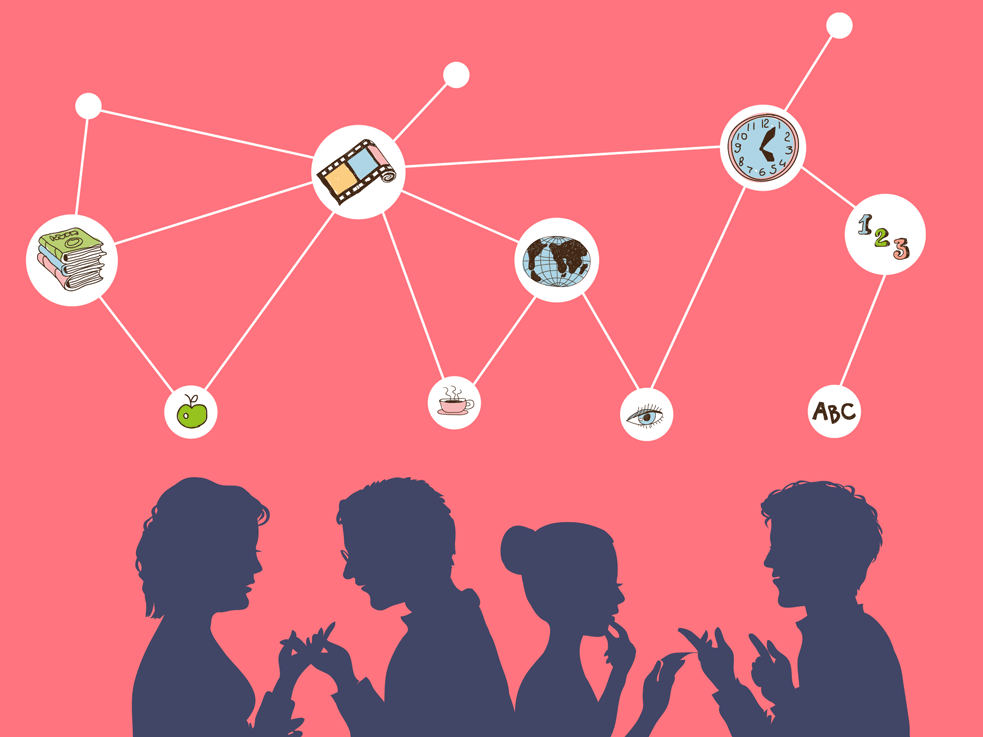Buzz Haven: Your Source for Trending Insights
Stay updated with the latest buzz in news, trends, and lifestyle.
Language Learning: A Love Affair in Your Head
Ignite your passion for language learning! Discover tips, tricks, and insights that turn every word into a love story in your mind.
The Neuroscience of Language Learning: How Your Brain Embraces New Languages
The process of language learning is intricately tied to the workings of the brain, engaging a network of regions that facilitate comprehension and production. When we learn a new language, areas such as the Broca's area and Wernicke's area come into play, responsible for speech and language processing. Neuroplasticity, the brain's ability to rewire itself, allows for the formation of new neural pathways that accommodate the intricacies of a foreign language. This means that as learners practice and immerse themselves, their brains start to adopt the syntax, vocabulary, and phonetics of the new language, enhancing cognitive flexibility.
Moreover, studies suggest that the age at which one starts learning a new language can significantly influence proficiency, with younger learners typically exhibiting superior abilities in acquiring native-like pronunciation and grammar. However, adults can leverage their existing linguistic knowledge, using transfer techniques to enhance their learning experience. Engaging with the language through diverse methods—such as reading, listening, and speaking—activates different cognitive processes, thereby enriching the overall language learning experience. In essence, understanding the neuroscience behind language acquisition not only demystifies the challenges faced but also highlights the incredible potential of our brain to adapt and grow.

10 Proven Strategies to Fall in Love with Language Learning
Learning a new language can be an exhilarating yet challenging journey. To truly fall in love with language learning, consider incorporating variety and enjoyment into your study routine. For instance, watching foreign films or listening to music in the target language can make the process more engaging. Another effective strategy is to connect with native speakers through language exchange platforms, allowing for immersive conversations that enhance both your skills and cultural understanding.
Setting realistic goals can also help transform your language learning experience. Break down your objectives into manageable milestones to track your progress and celebrate small victories. Joining language classes or online forums to find like-minded individuals can foster a sense of community, making learning more enjoyable. By integrating these strategies, you’ll find yourself developing a sincere passion for language learning, making the journey not just educational, but also deeply fulfilling.
Is Language Learning a Form of Self-Discovery?
Language learning is not just about mastering grammar and vocabulary; it is a deeply enriching process that fosters **self-discovery**. When individuals embark on the journey of acquiring a new language, they often find themselves uncovering hidden facets of their own identities. Engaging with a foreign language allows learners to connect with diverse cultures, traditions, and perspectives, ultimately challenging their worldview. This cultural immersion aids in the development of critical thinking and enhances emotional intelligence, as understanding a new language often requires empathy and an appreciation of differing viewpoints.
Furthermore, the process of overcoming linguistic barriers can lead to profound personal growth. As individuals navigate the complexities of pronunciation and syntax, they are forced to confront their own limitations and insecurities. Each new word learned and each conversation held represents a small victory in **self-discovery**, bolstering confidence and resilience. In this way, language learners embolden themselves to step out of their comfort zones, fostering not only language skills but also a deeper understanding of their own strengths and potential in an increasingly interconnected world.